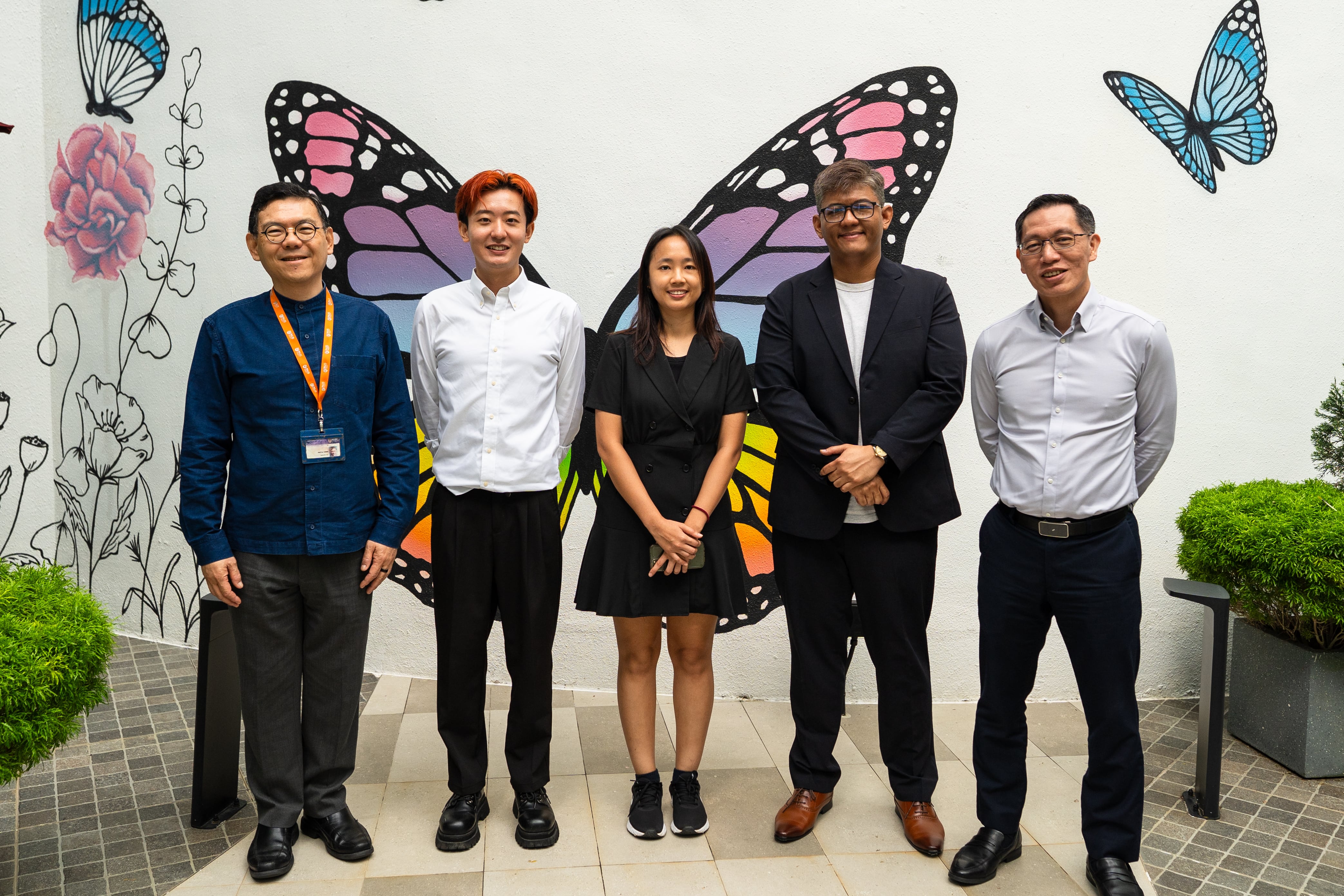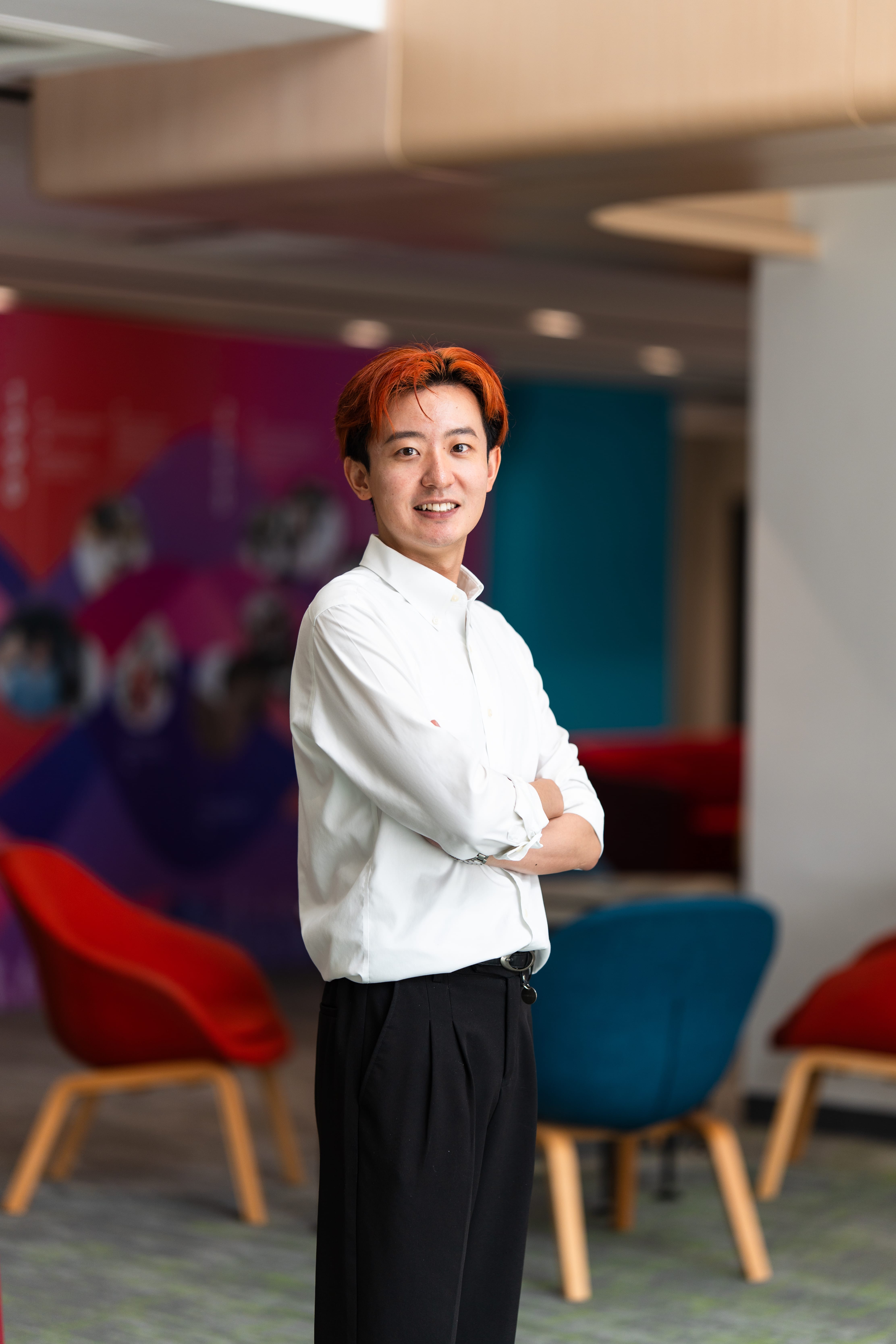Projects and internships empower our Graduate Diploma in Systems Analysis (GDipSA) students to bridge theory and practice, translating ideas from the classroom into real-world applications.
Bringing their ideas to fruition were the students of the 58th GDipSA cohort, whose rigorous five-month internships culminated in an Industrial Attachment Project Presentation featuring three outstanding projects and one that was awarded the prestigious Accenture Prize.
"When you're in a particular position in the company, it's natural to want to make a strong impression. But beyond just individual performance, we encourage our students to start thinking about the bigger picture, and not just focusing on a single application or project but understanding how all the pieces fit together. We also want to see more initiative - not just completing tasks but actively pushing the boundaries with the internship companies. Drive the conversation. Challenge assumptions. Show them what we're truly capable of." said Dr Leong Mun Kew, Director of Graduate Programmes.
CEO Mr Khoong Chan Meng added "It's not just about building solutions. It's about helping your company uncover new opportunities. That’s the kind of holistic thinking we value. We want you to ask yourself: What else can I do? How can I apply what I’ve learned more effectively? It’s not only about solving the task in front of you but about using innovation to open doors - for yourself, and for your organisation. This experience should also serve as a stepping stone in your career. We want to see you leading, questioning, and positioning your company to be at the forefront of the industry. With the kinds of ideas you’ve shown, the next question is: What else can you do with them and how can you do it differently?"

The three GDipSA student presenters at the Accenture Industrial Attachment Project Presentation with our judges. From L to R: Dr Leong Mun Kew, Director of Graduate Programmes, NUS-ISS; Mr Xia Tian; Ms Dion Loh; Mr Alphonsus Tay; and Mr Khoong Chan Meng, CEO, NUS-ISS.
Held on 16 April 2025, three teams shared their applications to their internship projects as they sought to drive this very transformation for their users - each of which spanning very different industries, from engineering, finance and healthcare.
Diving into our students projects
First to share was Alphonsus Tay who worked on The Structural BIM Compliance System Part 3 - Framework Migration, 3D Visualisation and Workflow Improvement, an inspection system that validates 3D building models against regulatory requirements.
The system previously relied heavily on AWS Amplify, creating vendor lock-in issues and limiting deployment flexibility. As a startup with a small development team, the organisation needed a solution that would enable multi-environment deployment options to meet diverse client compliance requirements while streamlining the development and deployment process.
By migrating from a vendor-locked system to a flexible, multi-environment solution, the organisation can now serve previously inaccessible clients with strict data sovereignty and regulatory requirements, potentially doubling their addressable market.
The modular architecture and standardised deployment approach reduced deployment time from weeks to days, significantly improving development velocity and time-to-market while reducing technical support costs.
The modular Terraform templates, containerised architecture, and deployment scripts eliminated the need for custom development work for each client environment, potentially saving hundreds of development hours per deployment. This efficiency translates to hundreds of saved development hours per client onboarding, substantially lowering implementation costs. Additionally, the provider-agnostic solution enables the organisation to pursue new business in industries with strict infrastructure requirements, expanding revenue opportunities without proportionally increasing development costs.
Next, Dion Loh shared about her project - Healthcare Software Development Project: Integrating Video Analytics for Enhanced Patient Care.
Her project emphasised the integration of cutting-edge technologies into healthcare workflows to address challenges such as manual monitoring inefficiencies and the growing demand for healthcare professionals.
These initiatives aimed to automate monitoring processes, improve medication adherence, and assess functional mobility using AI-driven solutions. By leveraging cutting-edge AI technologies, the goal was to enhance patient outcomes and support more proactive healthcare interventions.
Slicing and Masking Tool
After a thorough panel deliberation, it was Xia Tian who ultimately emerged winner for the Accenture Prize for Best Industrial Attachment Project. His project was with Inland Revenue Authority of Singapore (IRAS), where there was a critical need for an internally developed, in-house solution capable of generating high-quality test data that closely resembles real-world production data.

Mr Xia Tian, Winner of the Accenture Best Industrial Attachment Project Prize
Testing is a critical component of the software development lifecycle, ensuring the reliability, accuracy, and robustness of solutions before deployment. Different stakeholders have distinct requirements for test data: (a) Users/Testers require real-world data to validate solutions and identify potential issues early; (b) Development Teams benefit from testing with production-like data early in the development cycle to ensure alignment with real-world complexities; and (c) Business-as-Usual (BAU) Teams require masked yet representative data to effectively troubleshoot production incidents.
Currently, IRAS relies on two primary methods for generating test data: (1) manually creating and uploading fabricated data into databases, which is resource-intensive and may not accurately reflect production environments, and (2) utilising commercial tools to mask production data, which incurs additional costs. To address these challenges, the solution should enable users to work with targeted data subsets rather than the entire production database while ensuring that sensitive information is appropriately masked to maintain data security and compliance.
The successful development of the in-house test data generation tool SMT has provided IRAS with a cost-effective and automated solution for producing high-quality, production-like test data. This eliminates reliance on expensive commercial tools and manual data preparation, improving efficiency and scalability.
Additionally, the tool has enabled the completion of critical requirements from two key teams—the Data Migration Team and the Application Development Team—by extracting relevant data from the production database, applying advanced masking techniques, and inserting 471 tables with over 400 million records into UAT and cloud environments. This has significantly enhanced data accessibility, usability, and security while ensuring compliance with data protection policies.
Own your transformation journey now. For more information on NUS-ISS' Graduate Diploma in Systems Analysis Programme, visit here.